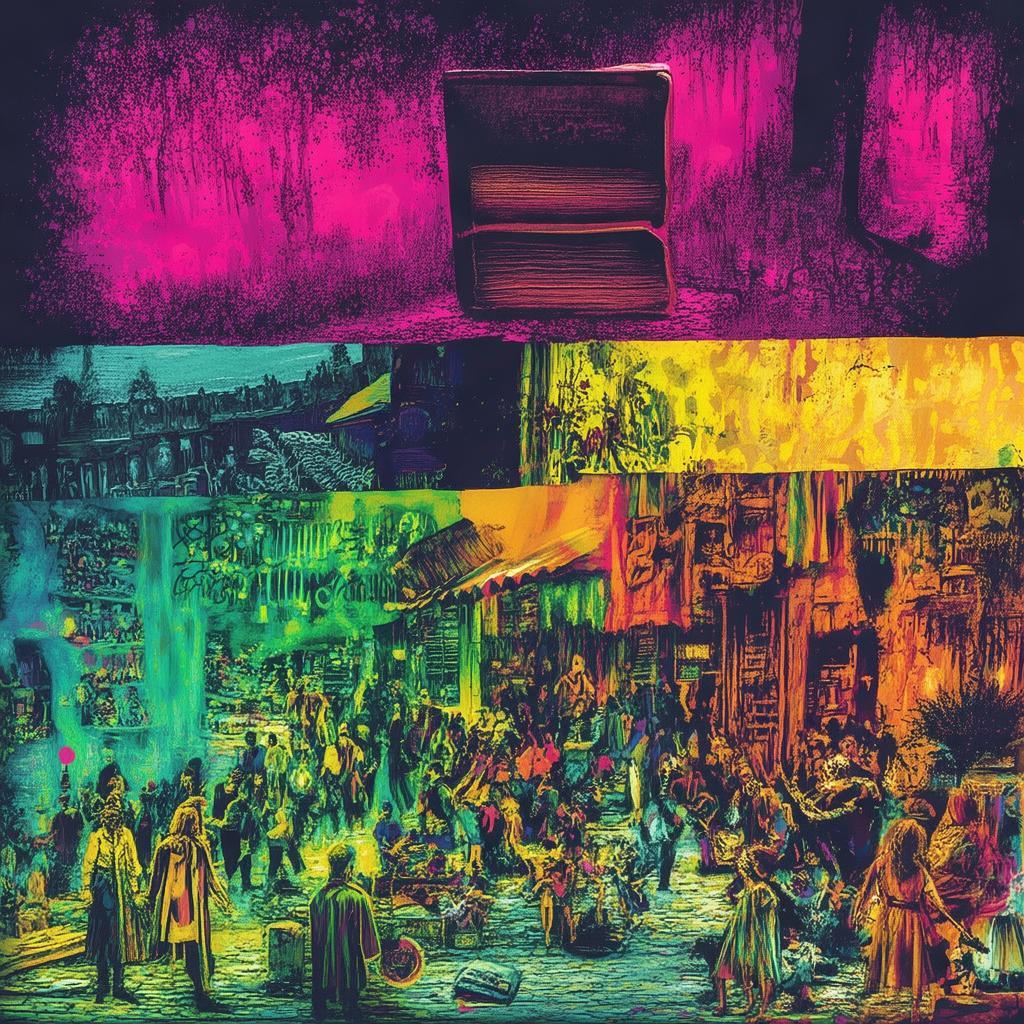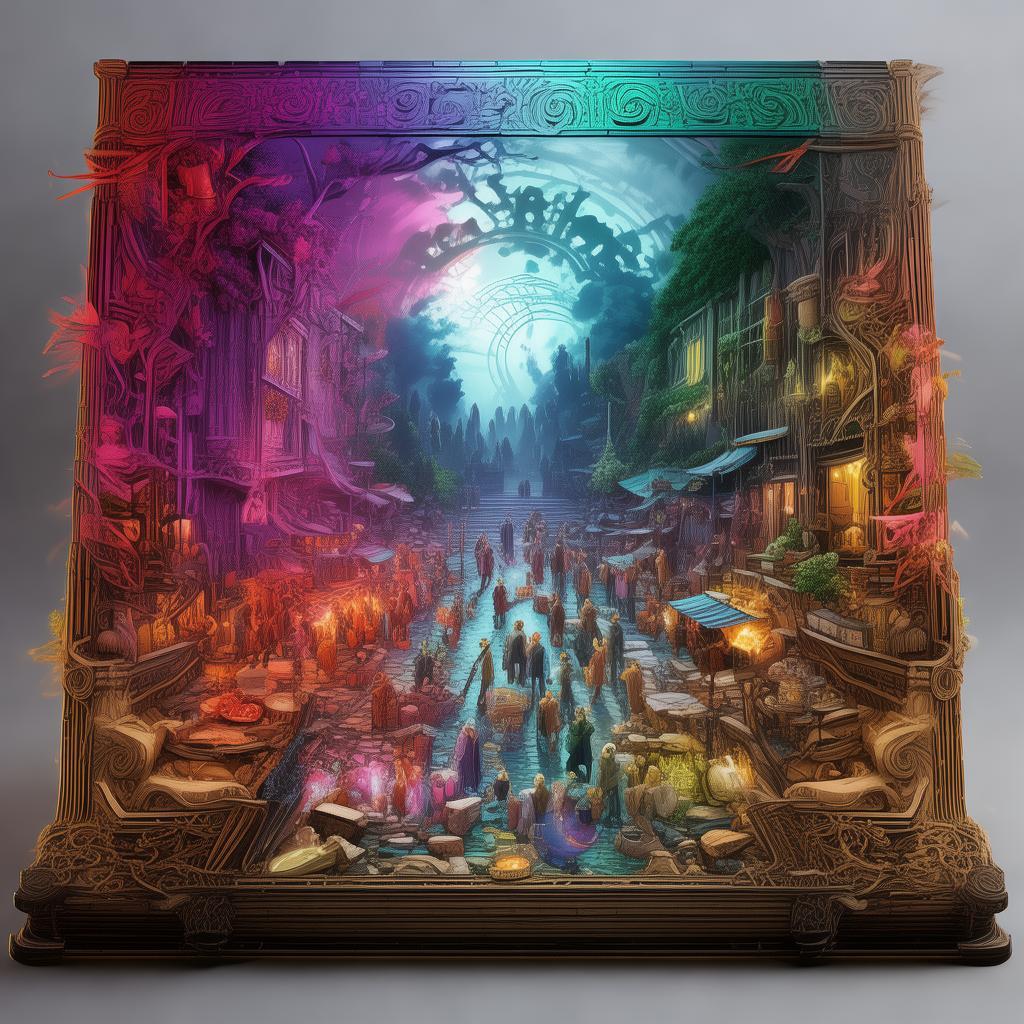The Whispered Alphabet
In the heart of a bustling metropolis, where the cacophony of urban life masked the whispers of the past, there lived a young linguist named Elara. Her life was a tapestry of scholarly pursuits, her days filled with the meticulous task of decoding ancient texts. She had a passion for the roots of language, for the hidden stories etched into the very fabric of words.
Elara had recently discovered an enigmatic manuscript in the archives of the city's grand library. The manuscript was a collection of cryptic symbols, its pages yellowed and brittle, as if the secrets they held had been preserved for centuries. The librarian, an old man with a twinkle in his eye, had handed her the book with a hint of excitement in his voice, "These symbols are older than the alphabet itself, my dear. They are the whispers of the alphabet."
Elara spent countless hours decoding the symbols, her mind a whirlwind of possibilities. As she pieced together the fragmented language, she realized that the manuscript was a guide to a forgotten alphabet, one that held the power to reveal the true essence of words. Each symbol, she believed, was a key to a hidden truth, a secret language that could unlock the past.
The discovery was momentous, but it was not without its dangers. The whispers of the alphabet were not meant to be heard by the uninitiated. The library's archivist, a stern woman named Clara, had warned her of the risks, "The knowledge in that book is forbidden. Those who seek it are often met with tragedy."
Undeterred, Elara pressed on. She became obsessed with the manuscript, her nights filled with dreams of ancient civilizations and the power of language. She felt a strange connection to the symbols, as if they were calling to her, beckoning her to uncover their secrets.
One evening, as she sat in her small apartment, her eyes strained over the symbols, she finally deciphered the final section of the manuscript. It revealed a hidden message, a warning that the whispers of the alphabet were not to be used lightly. The message spoke of a world where words held power, where they could shape reality itself.

Elara's discovery did not go unnoticed. Clara, who had been watching her closely, confronted her. "You must destroy the manuscript. The knowledge it contains is too dangerous."
Elara refused. "I cannot. I have to know what this alphabet can do. I have to share it with the world."
Clara's face turned pale. "The world isn't ready for this. You could destroy it."
Ignoring the warning, Elara revealed her findings to a small group of scholars, hoping to garner support for her cause. But the whispers of the alphabet were too powerful. They spread like wildfire, and soon, the world was abuzz with the news of a language that could change reality.
As the whispers gained momentum, strange things began to happen. Words took on a life of their own, bending and shaping reality in unforeseen ways. Elara's apartment became a hub of experimentation, where scholars and adventurers gathered to harness the power of the alphabet.
But the power of the alphabet was not without its price. It became clear that the more one used the alphabet, the more they were corrupted by its influence. Elara herself felt the weight of the alphabet's power, her mind clouded by the possibilities it offered.
The climax of the story came when a group of radicals, driven by a desire to reshape the world in their image, sought to use the alphabet to impose their will. Elara, now deeply entangled in the alphabet's power, found herself at the center of a fierce battle between those who sought to harness its power and those who wanted to destroy it.
In the end, Elara realized that the alphabet was not a tool for manipulation but a mirror to the human soul. It revealed the darkest and most profound aspects of human nature. With the help of a few loyal allies, she managed to stop the radicals, but not without a heavy toll on her own mind and spirit.
The story concludes with Elara alone in her apartment, the whispers of the alphabet still echoing in her mind. She understands now that the true power of language lies not in its ability to change the world, but in its ability to reveal the truth about the human condition. The alphabet, once a forbidden secret, becomes a reminder of the profound impact words can have on our lives.
Elara looks out the window, the city below a sea of lights and voices. She whispers to herself, "The power of words is in their ability to heal, to comfort, to inspire. It is not in their power to change the world, but in their power to change us."
And with that, she closes the book, knowing that the whispers of the alphabet will always be there, a silent witness to the endless journey of human understanding.
✨ Original Statement ✨
All articles published on this website (including but not limited to text, images, videos, and other content) are original or authorized for reposting and are protected by relevant laws. Without the explicit written permission of this website, no individual or organization may copy, modify, repost, or use the content for commercial purposes.
If you need to quote or cooperate, please contact this site for authorization. We reserve the right to pursue legal responsibility for any unauthorized use.
Hereby declared.









